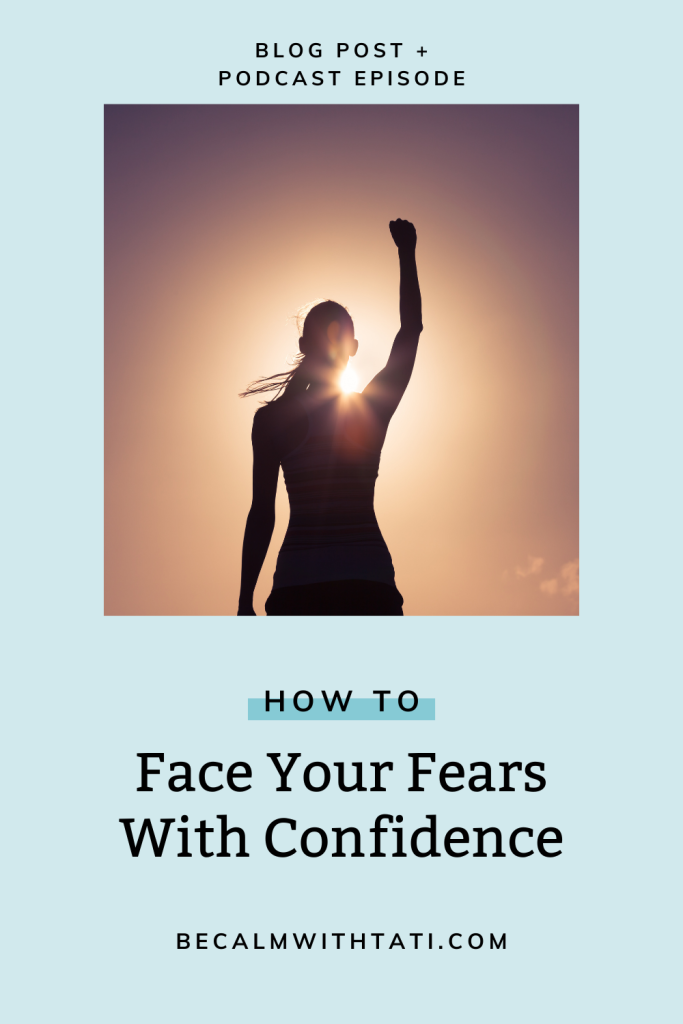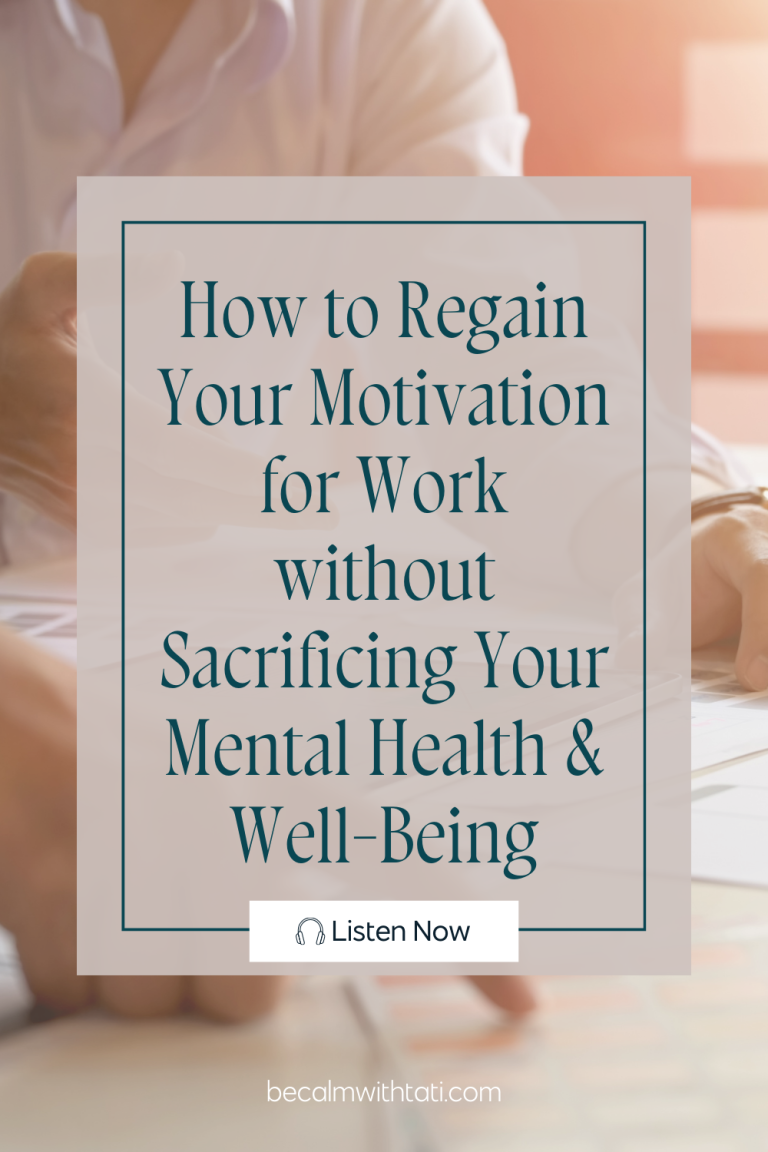"Everyone is afraid of something. We fear things because we value them. We fear losing people because we love them. We fear dying because we value being alive. Don't wish you didn't fear anything. All that would mean is that you didn't feel anything."
Cassandra Clare
Listen now:
Fear is a tricky emotion. Most people don’t really want to be afraid, but at the same time it can be helpful to keep you alive and safe. Everybody is afraid of something, and if you think you have no fears then you are probably lying to yourself. Some fears can be crippling though, and can lead to anxiety, avoidance, and difficulty enjoying your life.
So the question is, can you learn how to face your fears with confidence? Is it possible to get to a point where your fears do not control your life and you are able to stay safe, while also experiencing the challenges and beauty life has to offer?
Keep reading to understand this step-by-step process to face your fears:
1. Identify your fear
2. Change your perception by challenging your fear
3. Gradually expose yourself to your fear
4. Learn how to cope with triggers

What Is Fear?
Fear originates from an area of the brain known as the amygdala, which is responsible for processing emotions. Fear has evolved in humans and animals as a protective mechanism for survival.
There are two types of fears:
- Innate fears, which people are born with
- Learned fears, which are a result of experience
- Source: WebMD
Many people are afraid of spiders, bears, death, and physical harm. On the other hand, a learned fear can result from a specific experience that you had. One example could be a fear of going to school after having been bullied.
A phobia is:
"a type of anxiety disorder, defined by a persistent and excessive fear of an object or situation. The phobia typically results in a rapid onset of fear and is present for more than six months."
Fears can result in phobias, but they are not always phobias. The difference is the severity of the fear and how much it negatively impacts your life. If a phobia is getting in the way of you living your life, please seek the help of a mental health professional.
You may have heard of different phobias such as agoraphobia (fear of open spaces), claustrophobia (fear of confined spaces), social phobia (fear of being evaluated negatively in social situations), arachnophobia (fear of spiders), etc. There is an entire website with a full list of phobias that you can find at phobialist.com.
The key to learning how to face your fears is first identifying what your fears are. Take some time to think about and write down the things that keep you up at night, the things you tend to avoid, and the things that genuinely make you feel afraid.

Fears Become Bigger In Your Mind
One component that I think is essential to understand is that fears become bigger in your mind. You cannot learn how to face your fears without understanding this concept.
This concept was illustrated beautifully in the movie It: Chapter 2 (and it was actually the inspiration for this post). Without giving anything significant away, the entire basis of the Pennywise clown character is that he thrives off of each person’s fears. So what each person sees and experiences with him is different and based on their perception and fears.
Therefore, if you are able to change your perception of your fears so that they do not have control over you, you will become less susceptible to experiencing intense fear.
Your perception is what affects how afraid you are of something. Because we as humans are so good at thinking and have crazy imaginations, the consequences of your fears are often exaggerated in your mind.
Challenging Your Fears
You can challenge these perceptions by looking at the facts. A consequence of fear is often expecting the worst, when in reality the worst is highly unlikely.
Think about the following to help you challenge your fears:
- How likely is this fear to happen?
- Will I be able to survive coping with this fear?
- Do I know others who have successfully coped with and/or faced this fear?
The questions you use to challenge the reality of your fears may be different depending upon what it is. Be a fact detective and really analyze what you may be blowing out of proportion as a result of your emotions.
The real challenge is that fears can really feel so terrifying that can be hard to be objective. Try to do this during a time when you are already feeling calm, so that your fear does not hijack your ability to think logically.
Gradual Exposure To Face Your Fears
There is a type of therapy called exposure therapy which is used to treat anxiety disorders and consists of you being exposed to your object of fear. This type of therapy is effective because it builds the confidence that you are able to successfully face what you fear.
You can practice gradually exposing yourself to your fears by creating a list of steps working up to the situation you fear the most.
For example, if you are afraid of heights you might create the following list of steps in ascending order from least scary to most scary:
- Standing at a closed upper-floor window and looking out.
- Standing on a stepladder 3 feet from the floor.
- Standing on a balcony near the railing.
- Walking on flat ground above a mountain cliff, 20 feet from the edge.
- Hiking on a steep trail with guard rails.
(Source: Google Images)
This is called an exposure hierarchy and can be a way for you to identify ways to gradually feel more comfortable with what you fear. The key here is that what you are doing is ultimately safe, and you feel comfortable with one step before proceeding to the next.
Keep in mind: this is not a replacement for therapy. The most effective way to face severe fears and phobias is to seek therapeutic treatment.
You can try using this method on your own if you prefer using a self-help approach, if your fear isn’t debilitating, and if you can keep yourself accountable and/or seek support from somebody you can trust.

Coping With Your Fears
Learning how to face your fears can be difficult, yet so rewarding. Keep in mind that overcoming your fear may not always be immediate, but that does not mean you aren’t making progress!
Practicing relaxation techniques can be helpful prior to or while you are faced with a fear, in addition to getting support from others, and getting out your emotions through journaling.
Leave a comment below if you have any tips or resources for how to face your fears.
Best of luck!
















2 Comments
The fear of people always looking down on me, i have a very bad anxiety problems. Im trying to quit smoking pcp. My emotioms and thoughts. I could be a negative person. I wanna changed that. I wanna change my way of thinking.
Hi Seth, Thanks so much for your honesty! I’m so glad that you want to change your way of thinking because acknowledging that is the first step to making positive changes. The fear of judgment from others can be really difficult, and it can often be a reflection of a person’s own insecurities. I think you would benefit from seeking out the support of a therapist in your area. I wish you the best!